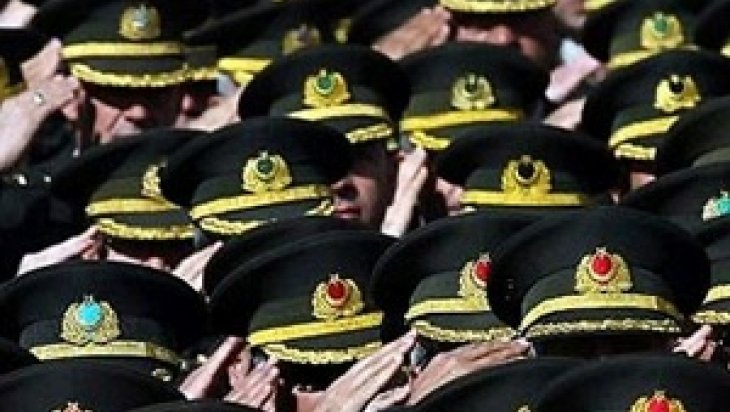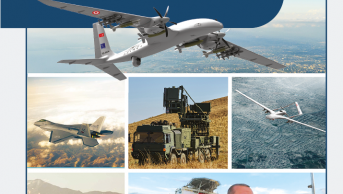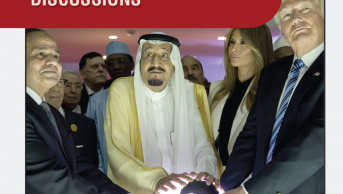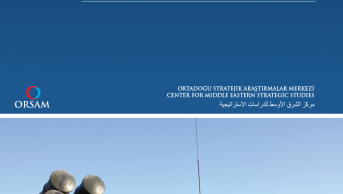Post-July 15: Military Reform in Turkey Crucial

On July 15, Turkey faced a new kind of threat, which had evolved inside country and developed in a labyrinth of infiltrators in both civilian positions and bureaucratic positions within the military over previous decades. The Gulenist coup attempt, on its own, was the worst crisis in the history of the Turkish Republic. The incident was the heaviest infliction of damage caused by the Gülenist Terrorist Group (FETÖ) to date. At this point, one question has taken precedence: How were Gülenist terrorists able to infiltrate the state system and how did they hide themselves over all these years? Neither our limited time nor this article's length would not be enough to explain. But it is still a question worth investigating from many perspectives by both researchers and academics. Although we cannot pinpoint the reason here, there are many reasons that Gulenists were able to infiltrate the system at various levels ranging from education to the judicial system and from government bodies to non-governmental bodies, as well as the private sector. If we want to reduce the threat of groups like FETÖ in the future, we must start with education reform. Every form of capital Turkey has has been dedicated to our young generations and it is our duty to protect this capital from falling into the wrong - dangerous - hands of FETÖ cells around Turkey. Well, what about security? How we will restructure our armed forces after all this?
First of all, Turkish security system, at both the theoretical and practical level, has to be replaced with a new one. Since the Ottoman Empire, the Turkish Army has kept a centric role to its establishment. For this reason, the worldview of the armed forces and its policy on security have been narrowly based and non-adaptive to changing warfare methods and the ever-changing security threat. In addition, the crucial role the army played during the establishment of the Turkish Republic brought about an ideology that the army must protect the public against both internal and external threats. Combating external threats is no exception for the Turkish Armed Forces (TSK) - it is considered the norm for all armies. But in Turkey, with the TKS having appointed itself as the guardian of the Republic and the backbone of the security mechanism against domestic threats, this exception led to a sequence of events which ensued after the 1960 military coup.
Another question to raise is: "Why did Gülenists aim to infiltrate the Turkish Armed Forces?" It is a question worth answering - and its answer will undoubtedly determine the success or the failure of the TSK. The only answer I have found, for now, is that there is a common idea in Turkey that the TSK is the most trustworthy and well-organized institution in the country. I think, that the Gülenists might have thought that they could not capture all positions in the TSK within the allocated time, thus extending their infiltration period over a period of time, as reaching the level of army general can take a minimum of 30 years.
Different levels of reform await implementation
Defense-related issues engender great challenges in today's world where both internal and external challenges exist. Planning changes to requirements on both the institutional and doctrinal level, coupled with choosing the right vessels to do the job are the main challenges faced by any army on an internal level. However, problems like this rise out of hybrid threats, growing terrorism, an increasing number of non-state threats and cyber threats, all of which shape the approach of a country's defense sector and how it interacts with the world surrounding it, where the "external threat" exists. In addition to all of this, Turkey's geopolitical location does not lend itself to security, presenting instead two-times the challenge as seen on the night of July 15. Also, as leading defense expert Arda Mevlütoğlu tweeted last week, some of the arrested TSK generals were part of Project TSK-2033 which aimed at the "restructuring of the army." This clearly shows just how deep the FETÖ threat lies and the challenges it brings to Turkey's reform process as well as other projects. Therefore, the need to be extremely careful during the implementation of current and future projects is of the essence for preventing further infiltration.
The changing dynamics of warfare and the changing demands for national security only compound the threat of FETÖ infiltration and make the need for reform all the more urgent. During the post-Cold War era, the TSK understood quite well what was happening on Turkish soil and around the world. The transition from Soviet-esque threats to the new generation of modern-day threats requires a more dynamic and adaptive army structure if we want to effectively counter these threats.
Regarding structural reforms, the concept refers to a wide range of areas including military service and recruitment policies, technology management, social sciences on the battlefield, and educational reform, as well. The question is: How can military service and recruitment policies be improved while utilizing human resource management effectively? With regard to technology management, emphasizing research & development (R&D) activities is important to stay caught up with the rapidly changing global security environment and to keep the army itself ready to adapt to future threats. The TSK does not commonly have a well-founded respect for the social sciences as they apply to the battlefield, although today's leading military powers effectively utilize the social sciences on a range of levels; namely, those related to administrative issues, civil-military relations, military sociology issues, cultural adaptation and humanitarian practices while remaining up-to-date on political developments worldwide.
At the educational level, the Turkish government has already taken particular steps such as closing down all military high schools and bringing all army colleges under the National Defense University, which was established on June 31. With respect to modification at the administrative level, accountability, transparency, and auditability are the key components to ensure democratic and effective procedures. These points are perceived as crucial to any democratic structure.
In sum, the worst crisis in modern Turkish political history may turn into an opportunity for Turkey to make reforms and re-organize its army and other security institutions in many ways. If we start by prioritizing virtue and merit, there will not be any doubt that our next generations will not be under the threat of any possible coup attempt in the future.
The original of this article was published on the website of the Daily Sabah.










